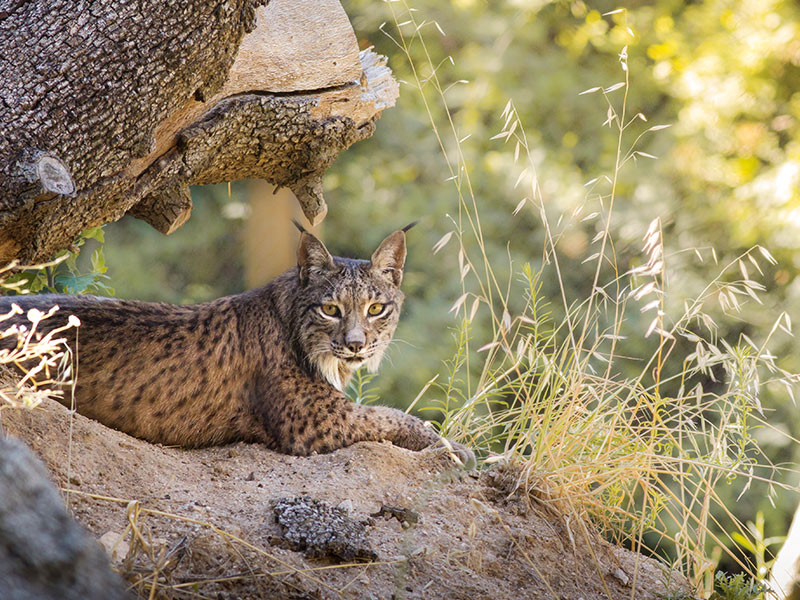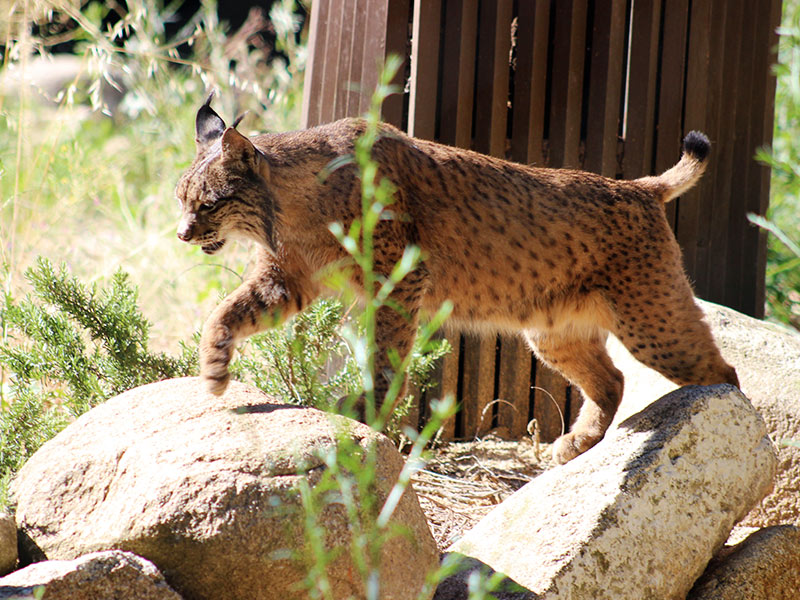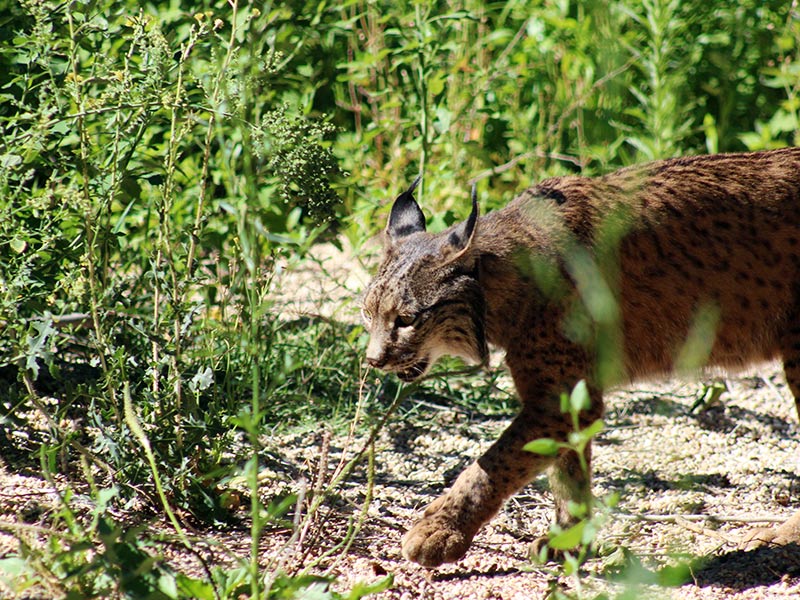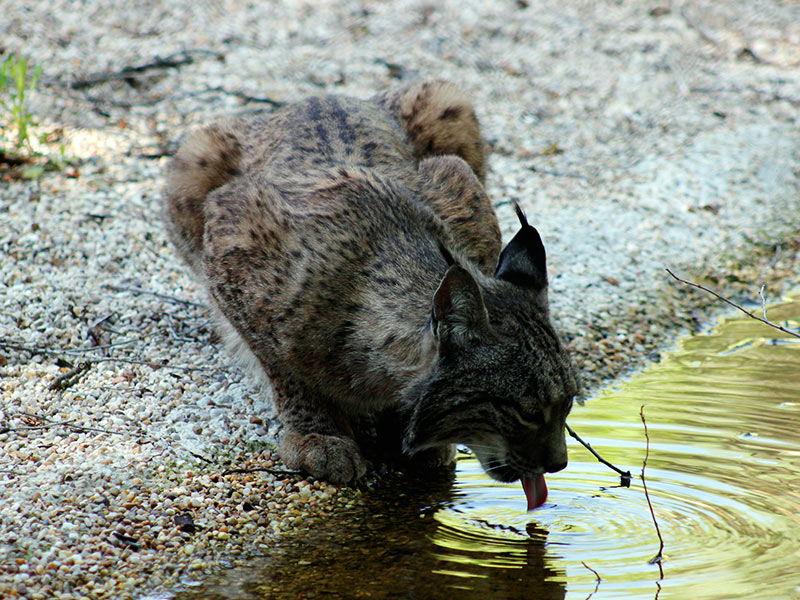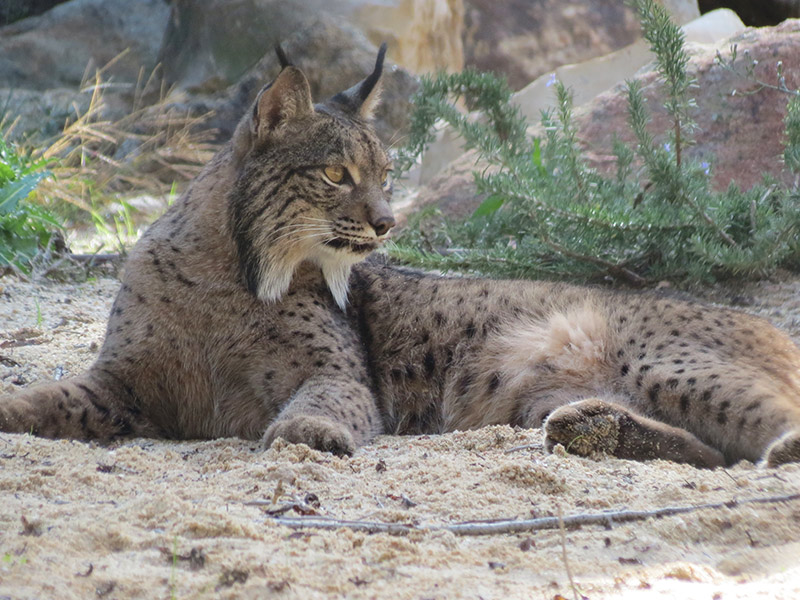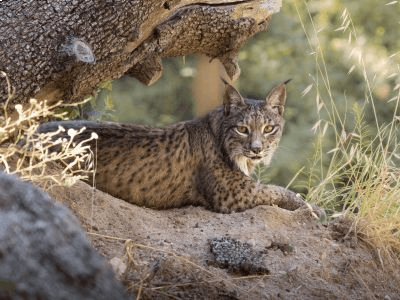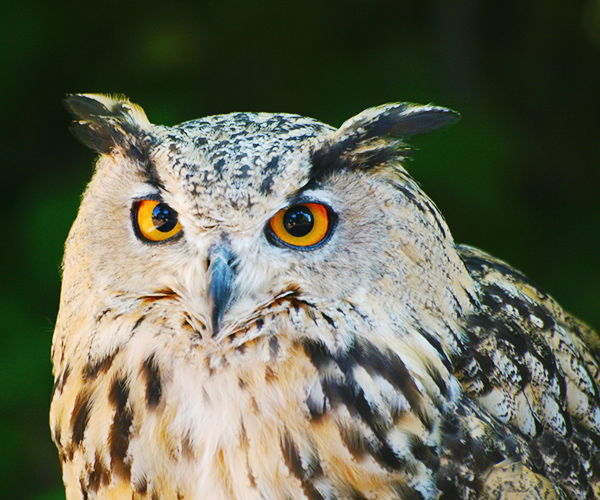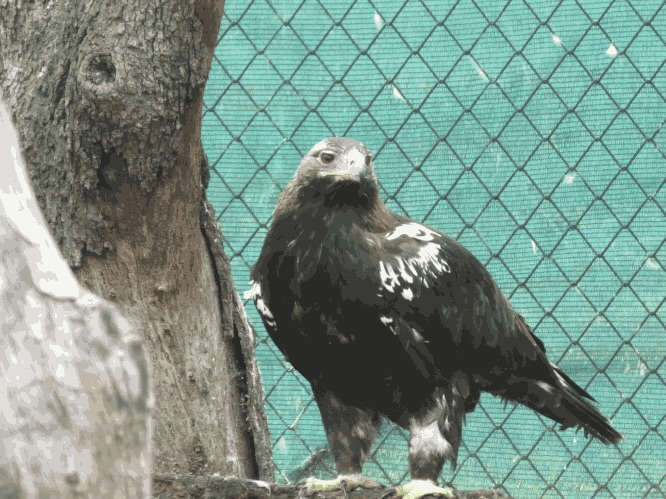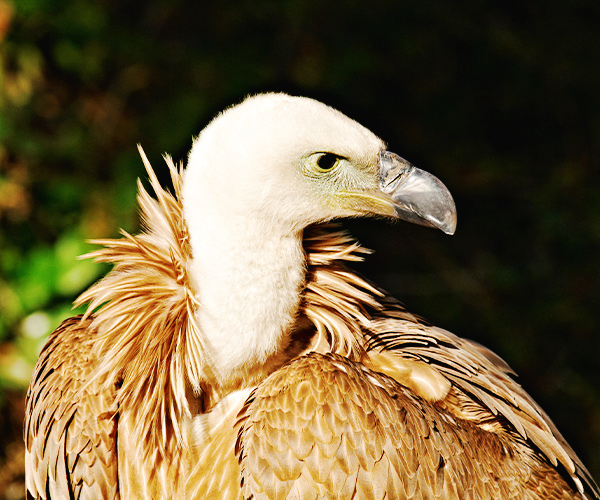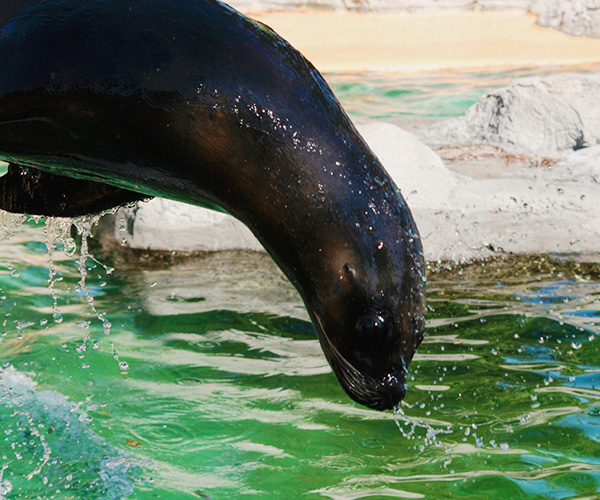The Iberian lynx is the largest feline in southern Europe and one of the most endangered on the planet. It is a species endemic to the Iberian Peninsula and originally distributed throughout it. Currently its population is composed of 1,365 specimens, which has allowed it to go from being classified as “critically endangered” to “endangered”.
Slender and long-legged (69-87.5cm in length and 36-55cm in height), it is unmistakable by its beard and black brushes at the tips of its ears. The coat is brown with dark patches of varying size and density depending on the individual.
The short tail is characteristic of all lynxes in the world.
Females breed once a year and not every year. Births take place between March and April, after approximately two months of gestation. The young are not very mobile and keep their eyes closed during the first 12 days of life. Up to four pups can be born.
Rabbits make up more than 90% of their diet, although they may occasionally capture other prey such as deer, fallow deer, partridges, micromammals and waterfowl.
Lynxes are solitary and territorial. They exclusively defend the center of their home range from sub-adults or adults of the same sex.
